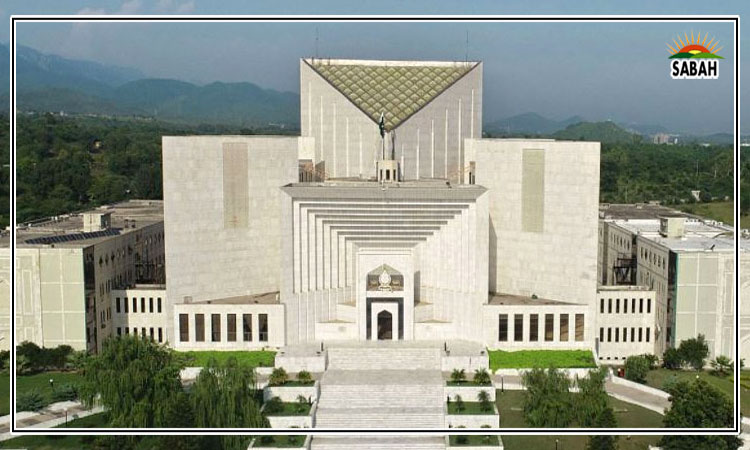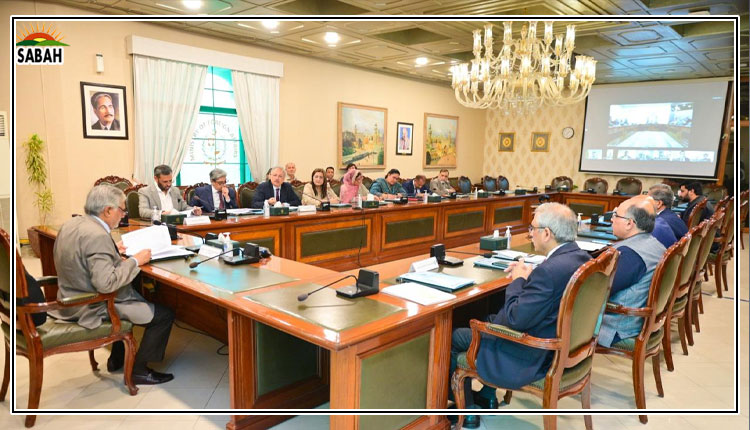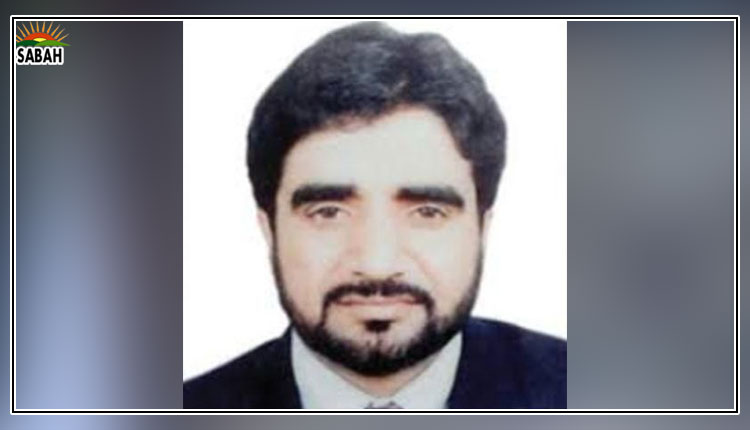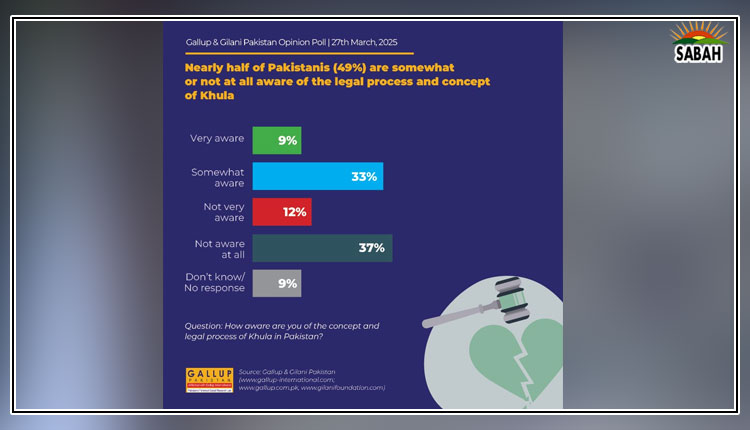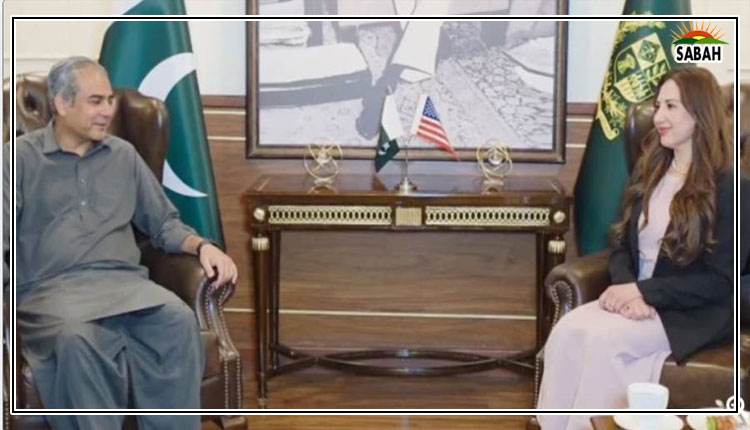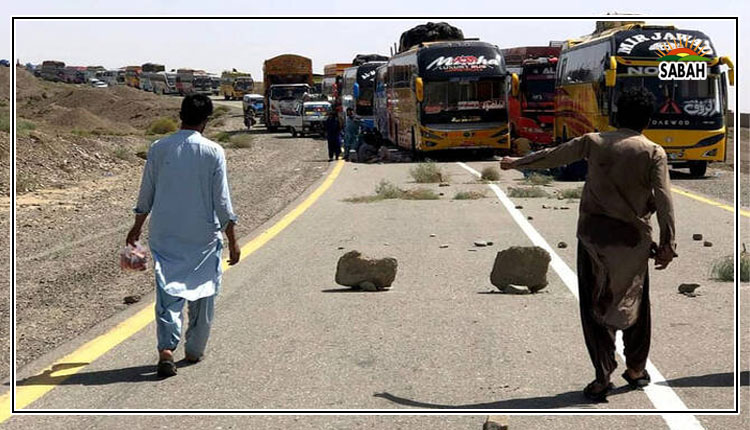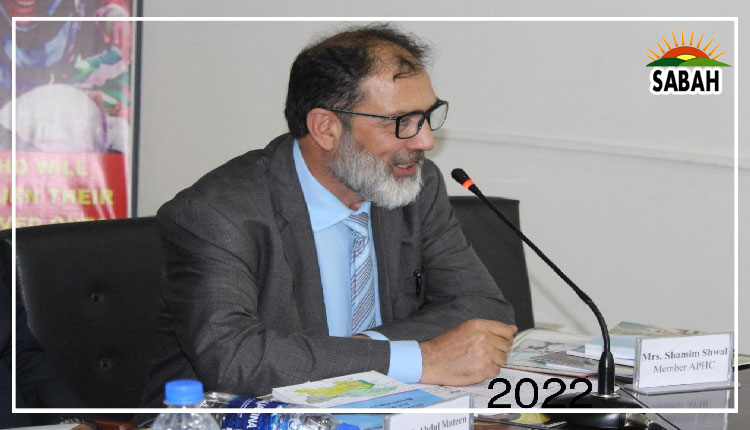Altaf Hussain Wani writes to G20 countries about India’s malafide intentions behind holding G20 Summit in IoK
ISLAMABAD, June 30 (SABAH): Chairman Kashmir Institute of International Relations (KIIR) Altaf Hussain Wani has urged G20 countries not to allow the Indian government to use them as its ‘brand ambassadors’ to project its normalcy narrative without giving an iota of importance to the wishes and aspirations of the Kashmiri people.
In a joint communique addressed to heads of G20 countries the KIIR chairman while highlighting the real motives behind India’s plan said that the Indian government’s controversial decision to hold the high-profile summit in the region (IOK) was based on mala-fide intentions aimed at deflecting the world attention away from the Kashmir issue, creating a cobweb of confusion around the issue and minimize the legitimacy of Kashmiris’ demands for holding plebiscite in the region in line with the UNSC resolutions.
“India’s present-day government, which in brazen violation of the UNSC resolutions had unilaterally and unlawfully changed the special status of Kashmir in 2019, has since then been remorselessly peddling lies to promote so-called normalcy narrative on Kashmir”, the communique said.
Referring to the individual trips of the Members of the European Parliament to Kashmir last year, the letter said, “EU parliamentarians’ individual visits were presented by the Indian government as official EU delegations”.
“Similarly, a trip of foreign envoys stationed at New Delhi to the disputed territory was arranged to keep the charade of normalcy alive”, he said adding that nearly two-dozen diplomats, mostly from European and African countries, were invited for a curated visit to the region to give an impression that all is well in Kashmir and to ward off the growing calls for an independent probe into human rights violations in the region.
“The guided trip has been more or less a replica of the past visit wherein the delegates were taken on a brief tour of “Naya (new) Kashmir”, which was skillfully carved out from the war-torn city overnight and decorated as per the visitors’ contentment by removing temporarily the barricades, barbed-wires, and bunkers that one can normally see dotted all around the city”, the letter said.
Underling the Indian government’s long history of using falsehood as a state policy to hoodwink the global community, the KIIR chief in his letter mentioned that the Modi government’s decision to hold the G20 Summit in Kashmir has triggered genuine concerns/apprehensions that the government would yet again use the high-profile meeting as a tool to achieve its strategic objectives.
Urging the heads of G20 countries to take a holistic review of the situation, Wani expressed the optimism that the member states of the Group would not allow the Indian state to use them as its ‘brand ambassadors’ to project its so-called normalcy narrative on Kashmir and influence the Indian government to change the venue of the Summit given the territory’s disputed nature.
Highlighting the terrible situation in the region, Altaf Hussain Wani said, “Rather than getting swayed by India’s propaganda what the world, in particular, the heads of G20 countries need to know about Kashmir is that it has been classified as the world’s most militarized zone as well as the largest region occupied by Indian forces illegally”.
“Kashmir is the largest open-air jail on the surface of the earth, where Kashmiris feel literally caged in their own houses; where they live without human rights”, he added.
He said that the world needs to know that India has turned Kashmir into a living hell for its people where they feel exiled in their own homeland, they feel robbed of their rights and identity. Kashmiris, he said, cannot even mourn the death of their loved ones killed in fake encounters, they cannot even eat the food of their choice, cannot complain or support the victims of oppression, and cannot raise their voice against the reckless state violence.
Referring to Kashmiris’ legitimate demands, he said, “The people of the Indian occupied Jammu and Kashmir have been demanding the implementation of the UNSC resolutions that besides upholding the Kashmiris’ right of self-determination call for holding a referendum in the region to allow its people to exercise their right to determine their political future through a free, fair and impartial plebiscite.
Citing the UN Security Council Resolution – dated March 30, 1951, he said, “The final disposition of the State of Jammu & Kashmir will be made in accordance with the will of the people expressed through the democratic method of a free and impartial plebiscite conducted under the auspices of the United Nations”.
He said that the founding leaders of India including Mahatma Gandhi, Jawaharlal Nehru, and others had time and again reiterated their commitment to fulfill the solemn pledges they had made to the people of Kashmir and the international community vis-à-vis the settlement of the Kashmir dispute. “Even the Indian representatives on many important occasions have assured the world community that India will stand by her international commitments on the Kashmir issue and implement them at the appropriate time”, he said.
He regrettably noted that the successors of Gandhi and Nehru not only betrayed the people of Kashmir but also the international community. Kashmiris, he said, have been waiting for justice for the past seven decades.
Regarding India’s traditional intransigence, he said, “India’s non-compliance with the UN’s framework meant to resolve the dispute peacefully and above all the Indian rulers’ perpetual denial to grant Kashmiris their promised right has been a major cause and consequence of unrest and turmoil in the region”. “We sincerely hope that the G20 countries that have an enviable track record of upholding the people’s fundamental rights would take a clear-cut stance on the issue and play their much-needed role to help resolve this deadly conflict that poses a serious threat to peace and security in South Asia”, the letter further said.



